The Light or The BulbWe’ve all received the poignant advice from an elder to “do what I say, not what I do.” Of course, as we grow up and learn more about life and leadership we realize just how unrealistic that request is. Our actions are often heard far before our voice.
In this regard I’m always reminded of the coach in the huddle of his players, with veins popping out of his neck, yelling at the team to “calm down!” If that sounds a bit ironic, or hypocritical, that’s because it is. But, it’s certainly not an occurrence that is relegated to only sports. The lack of alignment between what one says and what one does is spread throughout all aspects of society. We have plenty of people sharing great messages, while putting very little into action. And, we have plenty of people doing great things which no one is aware of. Considering the questions Campbell poses in the opening quote - am I the bulb or the light, the answer seems clear if excellence and leadership is the objective. We must be both. Those that view themselves as only the bulb fails to add what only they could add to their story. Those that view themselves as only the light fail to apply proper value to their vessel. Why Should We Care? Excellence requires that we impact the people around us. The idea of impacting others is central to the purpose of anyone’s life. A purpose void of impact on others is merely a goal. In order to maximize our impact, alignment is vital. What we do and what we say must match. Most leaders focus on being the light. We share our thoughts and ideas on what we believe, how things should be done, and why it's the best way to do it. All of our focus in educating and training leaders is dedicated to guiding the light. We need to pay just as much attention to the bulb that carries the light. It’s no less important than the light. As a matter of fact, it could be argued that the vehicle is equally as important as the light itself. Afterall, it is the bulb that determines the wattage, isn’t it? In giving more consideration to the bulb, we begin to realize the importance of our health and energy. We embrace the reality that our presence and appearance as leaders is important. And, we begin to see leadership as much relational as it is informational. REAL TALK - Action Steps Being both the light and the bulb should seem like a challenging proposition because it is. It’s supposed to be. Aspiring to excellence is supposed to be hard. The one that’s not hard is called mediocrity. The world will gladly allow you to accept that one. Here are a few ideas to help you serve well in both roles, the light and the bulb.
Leadership is at its best when the bulb and the light align. When the bulb is just strong enough to perfectly accentuate the light, it is at its very best. Consider our leadership impact the same way. Both your message and the delivery of that message determine the impact of the light you share. For more information on building excellence in your teams, visit us at www.bluecollargrit.com. We would love to know how we could help!
2 Comments
The Light or The BulbWe’ve all received the poignant advice from an elder to “do what I say, not what I do.” Of course, as we grow up and learn more about life and leadership we realize just how unrealistic that request is. Our actions are often heard far before our voice.
In this regard I’m always reminded of the coach in the huddle of his players, with veins popping out of his neck, yelling at the team to “calm down!” If that sounds a bit ironic, or hypocritical, that’s because it is. But, it’s certainly not an occurrence that is relegated to only sports. The lack of alignment between what one says and what one does is spread throughout all aspects of society. We have plenty of people sharing great messages, while putting very little into action. And, we have plenty of people doing great things which no one is aware of. Considering the questions Campbell poses in the opening quote - am I the bulb or the light, the answer seems clear if excellence and leadership is the objective. We must be both. Those that view themselves as only the bulb fails to add what only they could add to their story. Those that view themselves as only the light fail to apply proper value to their vessel. Why Should We Care? Excellence requires that we impact the people around us. The idea of impacting others is central to the purpose of anyone’s life. A purpose void of impact on others is merely a goal. In order to maximize our impact, alignment is vital. What we do and what we say must match. Most leaders focus on being the light. We share our thoughts and ideas on what we believe, how things should be done, and why it's the best way to do it. All of our focus in educating and training leaders is dedicated to guiding the light. We need to pay just as much attention to the bulb that carries the light. It’s no less important than the light. As a matter of fact, it could be argued that the vehicle is equally as important as the light itself. Afterall, it is the bulb that determines the wattage, isn’t it? In giving more consideration to the bulb, we begin to realize the importance of our health and energy. We embrace the reality that our presence and appearance as leaders is important. And, we begin to see leadership as much relational as it is informational. REAL TALK - Action Steps Being both the light and the bulb should seem like a challenging proposition because it is. It’s supposed to be. Aspiring to excellence is supposed to be hard. The one that’s not hard is called mediocrity. The world will gladly allow you to accept that one. Here are a few ideas to help you serve well in both roles, the light and the bulb.
Leadership is at its best when the bulb and the light align. When the bulb is just strong enough to perfectly accentuate the light, it is at its very best. Consider our leadership impact the same way. Both your message and the delivery of that message determine the impact of the light you share. For more information on building excellence in your teams, visit us at www.bluecollargrit.com. We would love to know how we could help! Autonomy of ChoiceIn the basketball world, the skill trainer industry has exploded over the last ten to fifteen years. In the early 2000s, this type of instruction was relegated to professional players seeking to master nuances of their craft.
That’s certainly not the case any longer. Kids as young as seven and eight years old now have trainers, and not just for skill development. No, parents are now hiring people specifically to improve their shooting, agility, and strength. In this world, these training sessions are viewed as special, extra work the players are putting in. They’re also viewed as exclusive, something others are not getting. Neither of which are true anymore. The majority of players now work with a trainer. They call them, schedule a few days a week for a specific time, usually an hour, and pay the trainer before their sessions begin. And, from most trainers' perspective, everyone’s money is the same. It’s only as exclusive as their schedule dictates. I’m not here to say no one should use a trainer or that trainers are necessarily bad. What concerns me is that we are now eliminating the most important skill: choice. Why Should We Care? We schedule workshops for employees that aren’t motivated to attend. We set up workouts for athletes that feel obligated to practice. Rarely do we provide them the choice to decide on their own. That’s what they need to improve so choice isn’t an option. Nick Saban’s siege advice is certainly true - “The fact of the matter is that if you want to be good, you really don't have a lot of choices,” Saban said. “It takes what it takes. You have to do what you have to do to be successful.” There are not a lot of options on what you need to do. However, the option to do it, or not to do it, remains the ultimate question. See, the work is different when you are choosing it. When we’re talking basketball, it’s the intensity, creativity, level of detail, and sheer volume of work that is elevated. In the professional world it’s the depth of understanding, the application to different areas, and embracing the transformational aspect of the work. The truth is we can’t force others to choose. Our role as a leader is to create an environment that enhances the desire of those on our team to make the choices that most benefit themselves and the team. This is the essence of culture creation. The challenge, of course, is not getting pulled off the path by daily success and setbacks deemed important by society. By focusing on creating the best environment to drive the choices we want, we are doing our most important work as a leader. REAL TALK - Action Steps The question then, is how do we create this environment without mandating it? How do we make it an option when we know it needs to be done in order for our team to perform at its best. Here are a few ideas to get you started.
What is missing from this entire concept is that the training of the skill that we think is so important lags far behind the importance of developing the mindset to choose to do the work on our own. And, as long as we make that decision for those we lead, they will never do it for themselves. For more information on building excellence in your teams, visit us at www.bluecollargrit.com. We would love to know how we could help! Bearing BurdensIn the sports world, you usually don’t have to look too hard to find signs of selfishness rising to the surface. As a matter of fact, in the modern sports media it is often recognized and celebrated to the point that some are fooled into believing this behavior is what we should be striving for.
If there is anything selfishness is good at, it is shirking responsibility. Rather than reflecting on what they could have done differently to impact the undesirable outcome, selfishness sees only the justification of its decisions. It views results through the lens of the individual, themselves, rather than the team. Never at fault, selfishness breeds selfishness. Why Should We Care? In leadership, servanthood, relationships … life our impact and fulfillment will always be tied to our willingness to take responsibility. We will never achieve beyond the level we are willing to bear burdens. The more burdens we are willing to bear, the more impact we are capable of having. Yet, we are drawn to dismissing our responsibility when those burdens present themselves. Rather than jumping out of the way, we should be charging towards the very burdens we seek to avoid. Stepping towards rather than away from burdens forces us to honestly assess our actions and behaviors. It pushes us to improve while establishing our position as a servant to those we lead. Void of the improvement we are shackled to our current state. Void of the position of servant, we become nothing more than self-serving hypocrites. Burden bearing is an aspect of leadership in which an understanding, and acceptance of, is a must. People are more than willing to give their burdens away. Purpose and courage go hand in hand as the foundation for the bearing of burdens. It’s not for the faint of heart. REAL TALK - Action Steps I used to be averse to the phrase in sports, “My bad.” I mean, if you miss a ground ball and say “My bad” after you boot it, I want to say, “No kidding, I didn’t boot it.” Thankfully, my perspective has changed. Now I can see the power of “My bad” when it comes to burden bearing when it’s said and processed genuinely. Here are a few thoughts when “My Bad” is a good call.
Bearing burdens should not be viewed as a duty, rather it’s an honor we should embrace to lighten the load for those we serve. When we bear the burdens for others, they will often begin to bear our burdens as well. This is the essence of a team. For more information on building excellence in your teams, visit us at www.bluecollargrit.com. We would love to know how we could help! Humility WorksHumility is the shortcut.
We do several assignments in our leadership classes in which students are asked to self-evaluate their work. They give themselves points, and a grade, based on how well they feel they performed. The scoring of their work is more of an insight into their thoughts on themselves than it is on their work on that particular assignment. As I get to know the students more and more throughout the year, there is a clearly consistent theme to the character traits that reveal themselves for the different types of student scoring. Here’s a brief rundown:
Why Should We Care? The application of humility has more impact on our leadership, and impact, than any other attitude, technology, or tool we can find. Humility literally colors every aspect of our leadership and life. When applied, large doses preferred, who we affect, how we affect them, and to what level we affect them are all enhanced. Humility is welcoming. It draws others to us. As much as we think we like the motivational, charismatic speech that gets our blood pumping, what we realize quickly is that it never lasts and fails to create long term connections. Humility does the opposite. It binds people together, not through a single grand gesture but through a thousand small, seemingly unimportant, acts. It’s the consistency of humility that draws people in. Humility is transformational, not transactional. It aims for deep connection and significant purpose, not superficial motivation and bravado. Humility sits well with us. It inspires us to become better versions of ourselves. It doesn’t waste time on fleeting motivation. Humility prompts work. It’s hard to justify the need to work in the absence of humility. If you’re already good enough, why would you work? Humility impresses on us that we are never as good as we can be. We can always improve, always get better. This should not be mistaken for a lack of confidence. The humble are very confident. Confident in their ability to accept. Confident in their ability to persist. Confident in their ability to appreciate. REAL TALK - Action Steps Growing humility is not an easy thing to do. Just when we think we’re getting good at it - poof, we’re no longer humble. Here are a few ideas to help you think about how you may be able to grow your humility.
Humility is the shortcut. It’s also the only way to be our best and to have the transformational impact we aspire to have on the people we lead. We need to humble ourselves before someone else does it for us. For more information on building excellence in your teams, visit us at www.bluecollargrit.com. We would love to know how we could help! The Experiences of OthersAre we who we are because of our experiences or because of the experiences of others?
At first glance it would seem reality probably lands somewhere between the two. A combination of what I’ve experienced and what others have shared with me about their experiences meld together to create my view on the world, my perspective about life. And, I think this is largely true. The question is: should it be? Is this how we should be living our lives, forming our beliefs? We have all had numerous times throughout our lives in which the experiences of others do not align with our own. What one person sees as a waste of time, another sees as essential to their well-being. What one person views as risky or dangerous, the next may see as exciting and invigorating. What one person loves, another hates. It really is true that one man’s trash is another man’s treasure and not just in the physical sense. What is weakness to one is strength to another. What is timid and vulnerable to one is humility and acceptance to another. What is failure to one is renewed opportunity to another. Why Should We Care? Who we are must depend solely on our experiences. The experiences of others can be reviewed, examined, and considered. They provide curiosity and wonder on what that experience might be like. Some push us towards creating our own similar experience, others reassuring us that we don’t want it. What must always be remembered, however, is that they are not our experiences. And, as such, they piece together the life of others, not ourselves. This is no small point.. As soon as we begin to identify too closely with the experiences of others, we lose connection with the impact of our own experiences. The more we look out, the less we look in. Society loves to show us all of the incredible experiences others partake in every day. Unfortunately, the snapshot of the epic moment fails to reveal the experiences leading up to that point. This is precisely why relying on other people's perspectives is so damaging. When it’s our experience, we know the background. We know what went into making that moment a reality. When we’re merely observing someone else’s moment, that knowledge of previous experiences isn’t there. So, what do we do? We make it up. We tell ourselves some made up story about how they got to where they are. And, it’s never accurate. REAL TALK - Action Steps As much as this is about focusing on our experiences and allowing them to serve as the foundation to our lives, it’s just as much about grace and acceptance for ourselves and others. When we can dispose of the need to judge and compare, suddenly our experiences seem like just the right ones.
Our experiences define us. They determine what we believe, what we do, and who we become. Be certain that the person you are becoming is a result of your experiences, not someone else's. For more information on building excellence in your teams, visit us at www.bluecollargrit.com. We would love to know how we could help! |
About bcI'm a teacher, coach, and parent seeking excellence while defining success on my own terms. Archives
July 2024
Categories |

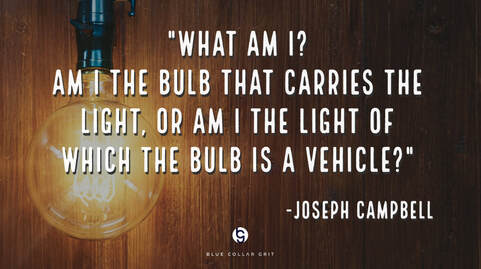
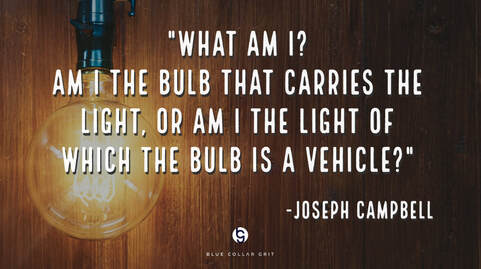
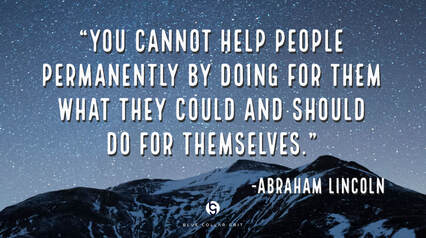
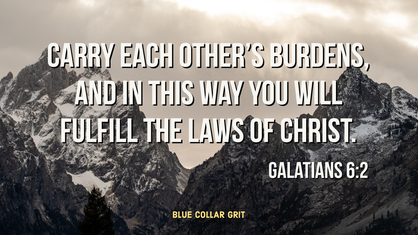
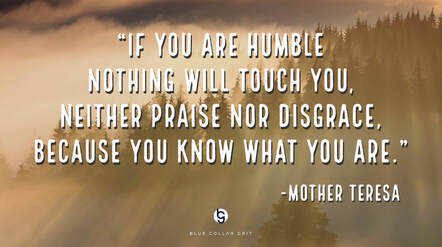
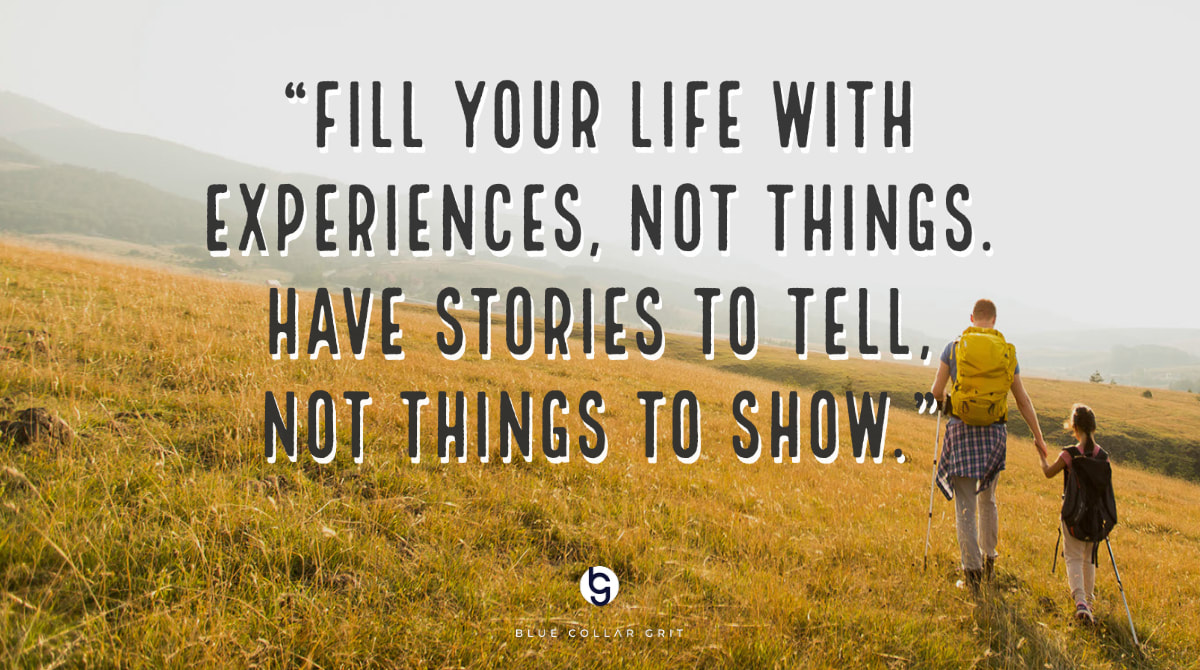
 RSS Feed
RSS Feed